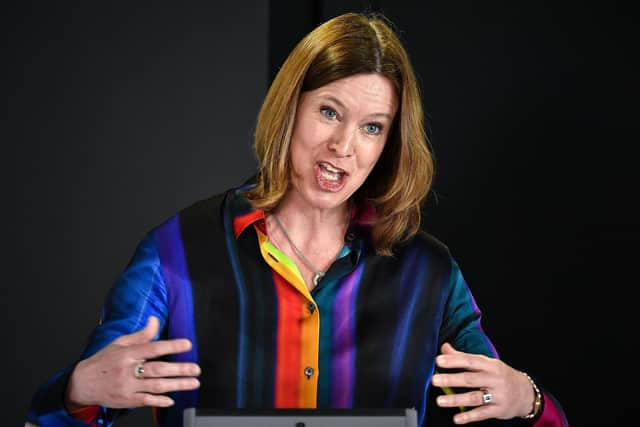UK Covid Inquiry: Scotland did not implement recommendations and was 'late and slow' due to poor planning, says Dr Catherine Calderwood
Scotland’s coronavirus response “didn’t learn” from the previous SARS outbreak, the nation’s former chief medical officer (CMO) has claimed, saying the Scottish Government was “late and slow” in its reaction.
Appearing before the UK Covid Inquiry in London on Wednesday, Dr Catherine Calderwood also told the inquiry some recommendations from an exercise in 2018 looking at how Scotland might respond to a coronavirus outbreak were not implemented.
Advertisement
Hide AdAdvertisement
Hide AdThe recommendations included guidance on the use and distribution of safety equipment PPE, and the fitting of FFP3 masks.


Dr Calderwood – who was the CMO from 2015 to April 2020 – when she was forced to resign for breaking her own lockdown guidelines – said other countries which were hit particularly hard by SARS, such as Singapore, had teams on standby to mobilise testing centres and contact tracing as soon as the Covid-19 virus became known.
"We were late and slow,” she told the inquiry. “There wasn't a formal or co-ordinated way to communicate with other countries and we could have learned more rapidly.”
Dr Calderwood said staff shortages in NHS Scotland were making it "extremely, extremely difficult" to plan for future pandemic as the healthcare system “would struggle to find any spare capacity to send staff on training exercises".
Giving evidence to the inquiry via a video link, Dr Calderwood said part of the reason for Scotland establishing its own version of Sage – the Covid-19 Advisory Group – was due to the poor communication infrastructure and quality of conference calls.
Dialling into remote meetings from Scotland "became much more difficult because that was based in London and Scotland was not fully part of that".
"There were a large number of people dialled into meetings and, of course, our infrastructure for remote working was nothing like it is now,” Dr Calderwood said. "I would have attended or my deputy attended with several other people from Scotland, but very often the quality of the line was poor.
"It dropped out very frequently and there was often not really a fully fluent readout from some of those very important meetings in the early days of the pandemic."
Advertisement
Hide AdAdvertisement
Hide AdDr Calderwood resigned as CMO in April 2020 after receiving a police warning for breaking the rules by making two trips to her second home in Earlsferry, Fife – more than an hour's drive from her main home in Edinburgh.
The UK Covid-19 Inquiry has been set up “to examine the UK’s response to and impact of the Covid-19 pandemic, and learn lessons for the future”. The first public hearings have focused on the “resilience and preparedness” of the UK and its governments.
Last week, the inquiry heard from former first minister Nicola Sturgeon, who admitted Scotland had no plan for a coronavirus pandemic, with Scottish disaster planning instead focussing on influenza.
“The plan was for a different type of pandemic than the one we unfortunately were confronted with,” Ms Sturgeon said.
Comments
Want to join the conversation? Please or to comment on this article.